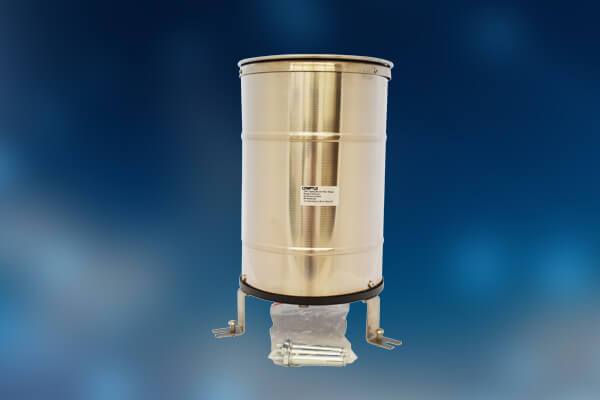Due Diligence in KYB: Ensuring Business Compliance and Risk Management
- 4118 Views Business
- MacRAES

The Importance of Due Diligence in KYB Processes
In the current business world where the business environment is highly regulated, due diligence is not an option but a necessity. With organizations expanding and establishing partnerships across borders it is even more essential to know who they are dealing with. Within the scope of Know Your Business (KYB), due diligence is the process of making sure that companies reduce risk, are in compliance with the law, and that they keep their business integrity. There are two main types of it Customer Due Diligence (CDD) and Enhanced Due Diligence (EDD).
This article examines the importance of due diligence in KYB processes, what the difference between CDD vs EDD is, and how corporate due diligence safeguards companies against financial and reputational damage.
What Is Customer Due Diligence (CDD)?
The first tier of the CDD process is Customer Due Diligence (CDD), which is aimed at identifying the identity of a business client and getting to know the nature of their business. In KYB, CDD is normally associated with gathering some basic company information, ownership information, business registration information, and evaluation of risk factors like the jurisdiction or the type of business.
The CDD process is created to make sure that the organization is aware of business counterparties and can identify the red flags at the initial stage of the onboarding process. It is mandated by Anti-Money Laundering (AML) laws across the globe and is an important aspect of business due diligence.
Corporate due diligence or business due diligence by CDD in corporate settings may also entail an assessment of financial performance, litigation history, as well as compliance histories. These checks enable businesses to make sound choices on partnerships and contracts.
What is Enhanced Due Diligence (EDD) Required?
Although CDD is standard, there are cases when it is necessary to look deeper. That is where Enhanced Due Diligence (EDD) is applied. EDD is applied where there is a greater risk in the business relationship- the example is a politically exposed person (PEP), a company in a high-risk country or a company with an intricate ownership structure.
Other verification steps involved in the EDD process are:
- Collecting a lot of information about Ultimate Beneficial Owners (UBOs)
- Looking at negative press reports
- Carrying out sanctions list checks
- Checking source of funds or wealth
- Visit or video interview (in some cases)
A comprehensive EDD process helps companies to improve their EDD compliance stance and minimise the chances of engaging in illegal or unethical practices.
Business and Corporate Due Diligence in KYB
Business due diligence in a KYB framework is the process of assessing the legitimacy, credibility and level of risk of a business client or partner. It involves examination of legal structure, financial history and history of compliance of a company. This is particularly applicable to B2B companies, banks and fintech companies that onboard other businesses as their clients.
Corporate due diligence is not superficial. It incorporates a more in-depth analysis of corporate governance, regulatory position, operational risks and environmental, social and governance (ESG) considerations. The insights facilitate improved decision-making and assist organizations to comply with regulatory demands like AML, CTF, and sanctions.
CDD vs EDD: What is the Difference?
It is important to understand the difference between CDD vs EDD to be able to adjust your KYB process to the riskiness of the business relationship.
- CDD can be used with low-risk clients. The first stage of examination is the one that confirms the identity of the business and assesses the simple risk indicators.
- EDD is activated when risk levels are surpassed. It entails further research and active monitoring, particularly on clients whose ownership is complex or clients in high-risk jurisdictions.
Through risk-based approach, companies are able to allocate resources effectively and still be compliant with EDD and regulatory requirements.
Automation of CDD and EDD Process
Manual due diligence is subject to error, inconsistent and time consuming. This is the reason why several organizations now resort to automation in handling the CDD process and the EDD process. Automated platforms make it easier to collect documents, extract data, risk score, and monitor continuously.
The benefits of automating customer due diligence and enhanced due diligence are:
- More rapid client onboarding
- Immediate access to worldwide corporate registers and sanctions lists
- Better accuracy and consistency of risk assessment
- Regulatory reporting built-in audit trails
Automation does not only enhance efficiency but also enhances the capacity of a company to scale due diligence operations without sacrificing on compliance.
EDD Requirements and Regulatory Environment
Different international and local regulatory frameworks require the strict adherence to EDD, particularly in the financial institutions and regulated sectors. In the EU, such directives as 5AMLD and 6AMLD outline the scenarios when EDD is required. In the U.S., there are also similar regulations that define the increased requirements of identifying beneficial ownership and high-risk entities, including the Bank Secrecy Act (BSA) and the Corporate Transparency Act (CTA).
Inability to comply with EDD and CDD may subject companies to massive fines, regulatory measures, and loss of reputation. With the ever-changing regulations, an active and scalable due diligence approach is even more important.
Conclusion
A compliant and trustworthy business environment is based on effective due diligence. Be it customer due diligence to identify the identity of a new customer, or enhanced due diligence, to investigate the high-risk entity, both are crucial in the present-day regulatory environment.
Through the knowledge of the CDD vs EDD difference, automation of the CDD and EDD process and the incorporation of the checks into the end-to-end KYB process, businesses can safeguard themselves against financial crime, enhance risk management and be compliant with the regulations.
With regulations getting stricter and risks getting more complicated, effective business due diligence and corporate due diligence procedures are no longer a choice, but a way to achieve success and sustainability in the long term.
Share on social media:


